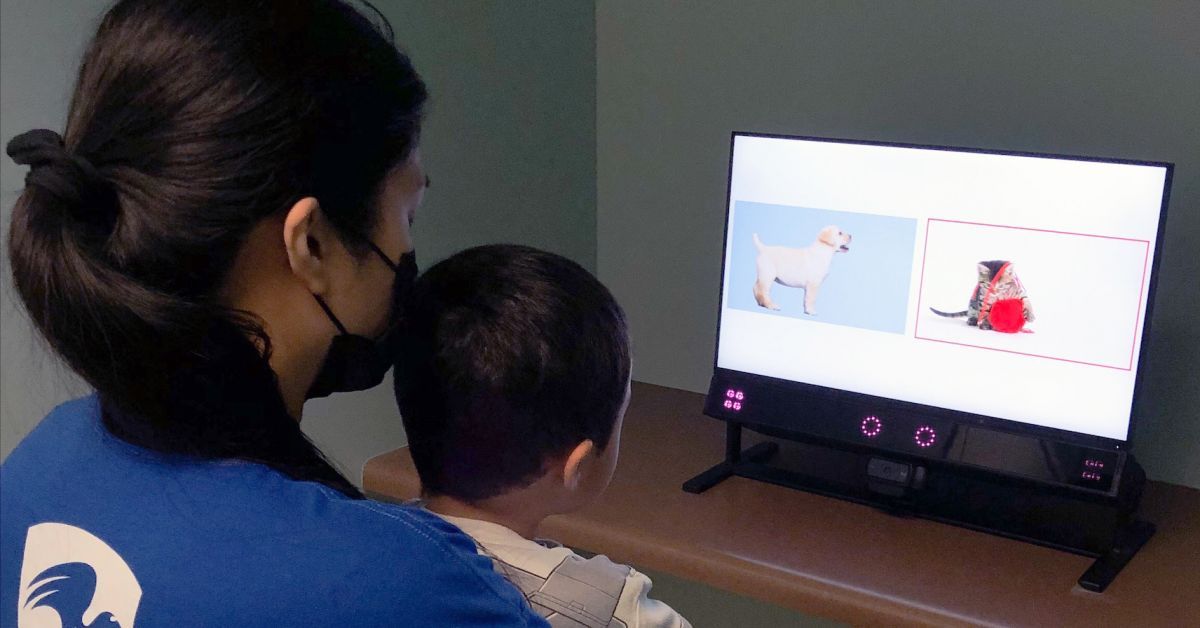$3.8 Million NIMH MERIT Award Supports Research on Innovative Diagnostic Tool for ASD
Story by:
Published Date
Article Content
A new five-year, $3.8 million Method to Extend Research in Time (MERIT) grant from the National Institute of Mental Health (NIMH) will fund research to develop an eye tracking-based screening tool for autism spectrum disorder (ASD). The research study will be led by principal investigator Karen Pierce, PhD, professor of neuroscience at the University of California San Diego School of Medicine.
Innovative primary investigators are selected for MERIT awards based on their high scoring R01 grant applications. MERIT awards allow the initial five-year funding period to be extended for another five-year to pursue additional research aims, for a total of 10 years. A MERIT award cannot be applied for, but rather, is based on nomination and approval within the NIMH.
According to the latest prevalence report published by the Centers for Disease Control and Prevention, autism is a neurodevelopmental disorder that impacts 1 out of every 36 children. Currently, best practices to identify whether a child has ASD are based on a screening questionnaire filled out by parents at pediatric well-baby visits.

“Such screening approaches are only modestly effective. Most of the commonly used screening tools can miss children who have ASD and sometimes results of the screening tool are incorrect,” Pierce explained. “Consider that the mean age of diagnosis and treatment engagement has been stable at around 3-4 years of age for the past two decades, even though symptoms of ASD are often observable within the first year of life. This means that most children with ASD are missing the opportunity to engage in early treatment, when the potential for neural plasticity is at its highest.”
This study will explore if eye tracking technology, which has been shown to be highly effective as a diagnostic tool in research settings, can be used effectively to screen for ASD in “real world” clinical settings. The study will screen for autism in children 12, 18, and 24-months old during well-baby visits in four separate pediatric offices across San Diego County. To test whether this approach could one day be adopted on a large-scale, nationwide as standard clinical practice, the eye tracking tests will be administered by medical staff and not researchers. Study participants will watch a series of short, one-minute movies while their eye gaze is recorded.
“Eye-tracking, which generates biologically-relevant, objective, and quantifiable metrics of social and non-social visual attention patterns, is a technology that holds considerable promise as a tool to dramatically change how screening is implemented,” said Pierce. “An eye tracking diagnositc may also be able to reduce the mean age of diagnosis and treatment engagement by several years.”
Additional members of the UC San Diego research team include Nathan Lewis, PhD, professor in the School of Medicine Department of Pediatrics, and Ronghui (Lily) Xu, PhD, professor in the Herbert Wertheim School of Public Health and Human Longevity Science and Department of Mathematics.
The NIMH award called, “Testing the accuracy of eye tracking as a screening tool for ASD in the general population,” is funded under grant number 1R37MH132924-01.
For more information about ongoing autism research at the University, visit the UC San Diego Autism Center website.
Share This:
You May Also Like
Stay in the Know
Keep up with all the latest from UC San Diego. Subscribe to the newsletter today.




